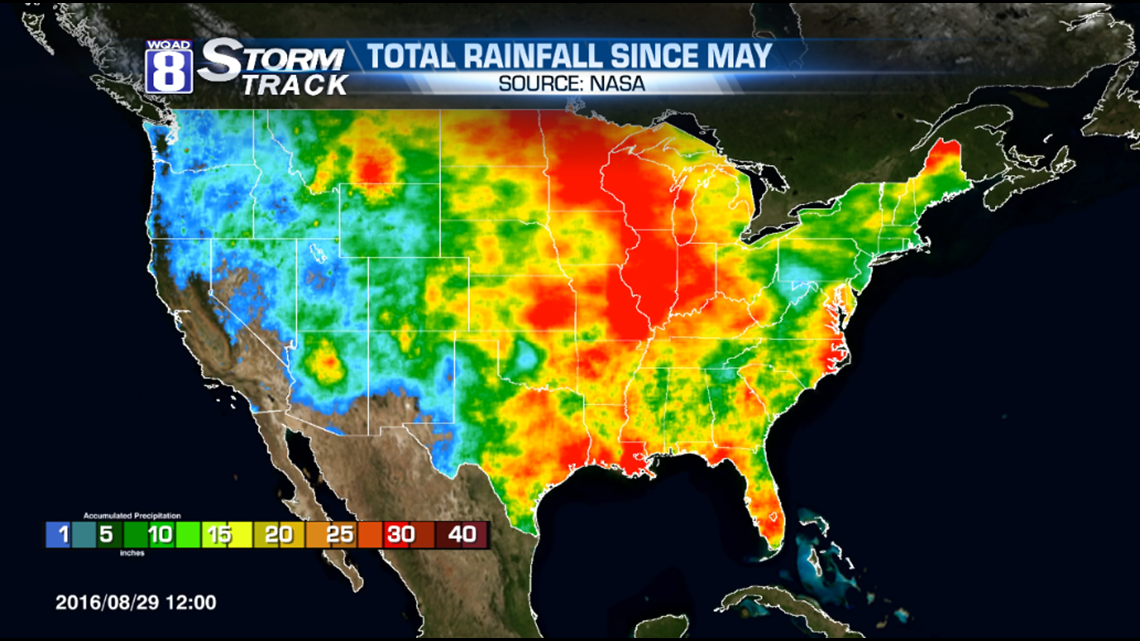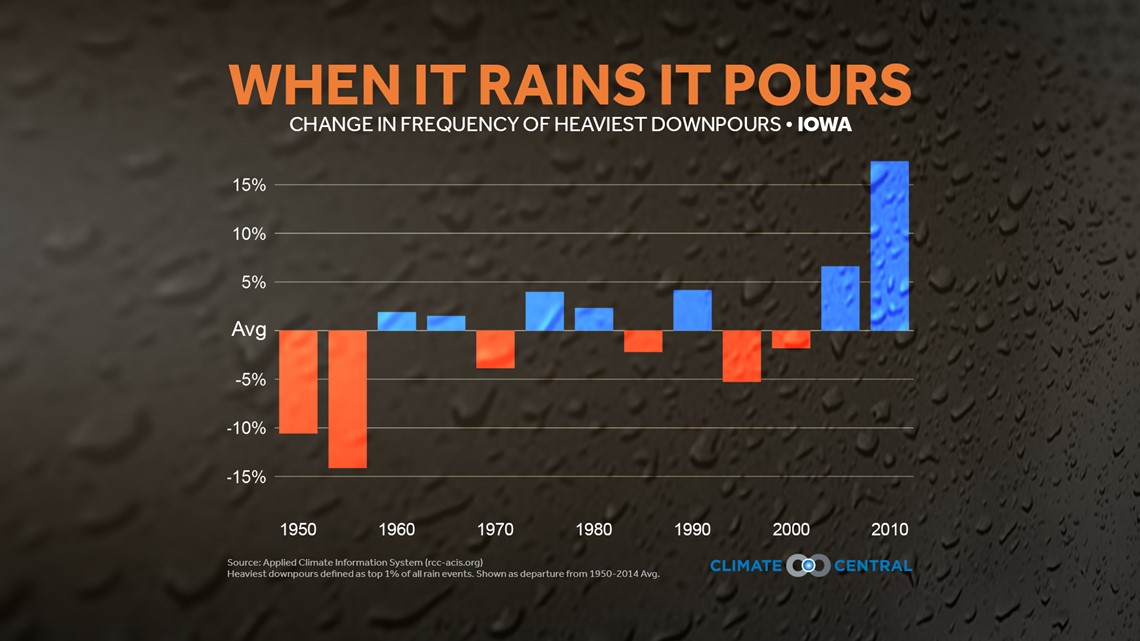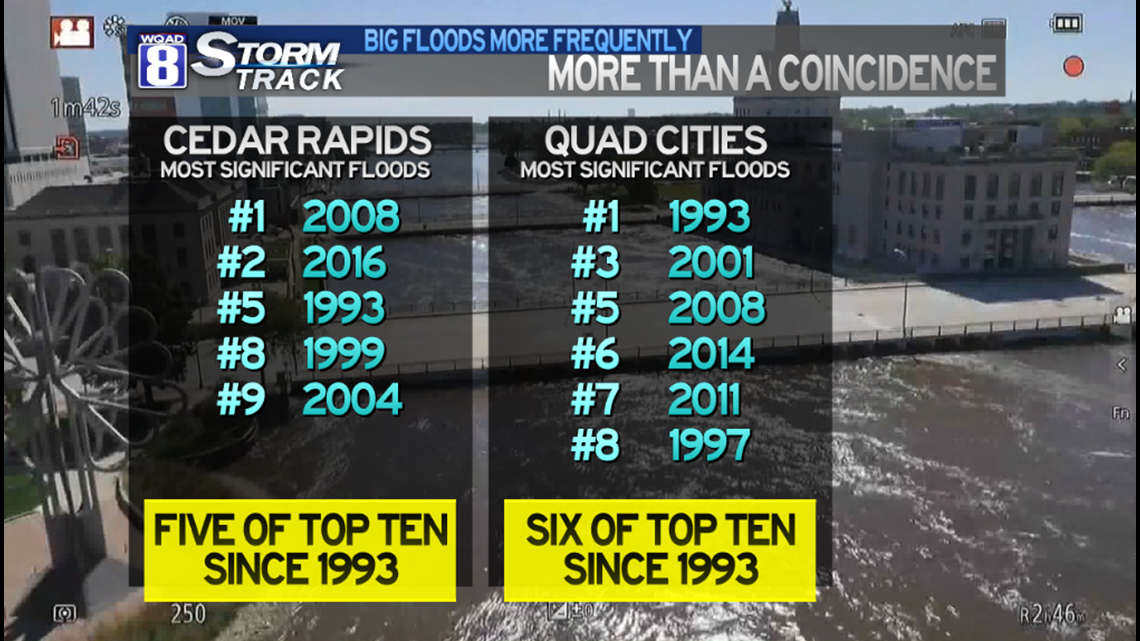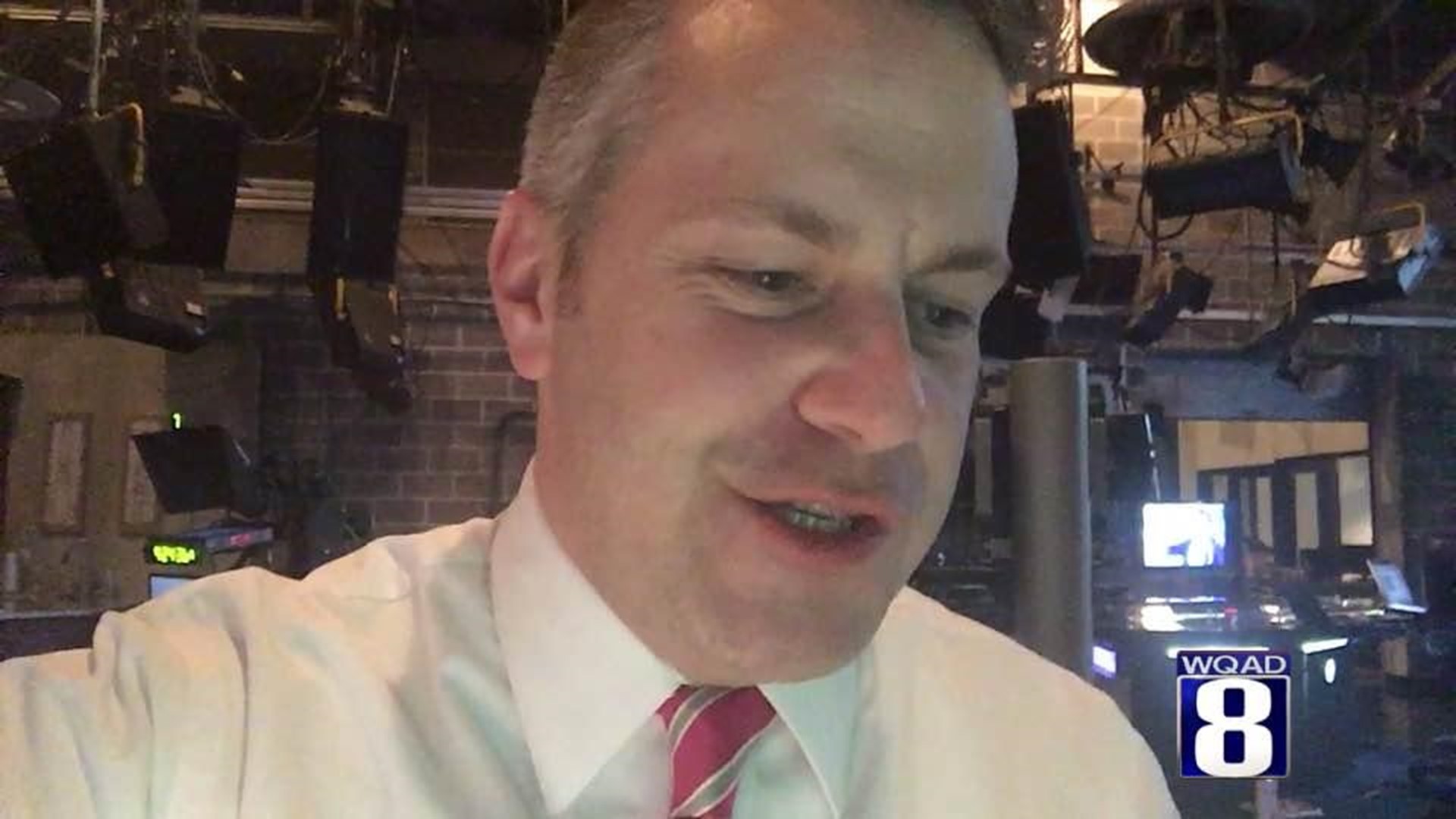I was in downtown Cedar Rapids on Tuesday to witness the city's second-largest crest of the Cedar River in recorded history. Pretty amazing since a "thousand year" flood inundated a majority of this city of 130,000 people only eight years ago. But back then there was little/no mitigation effort. According to ABC News, $10 billion damage occurred.
This year was very different because a lot was learned from the 2008 flood. I spoke to some engineers and Meteorologists along the riverfront who praised the effectiveness of the "Hesco Barriers," those sand-filled wire barrels that were stacked up to keep the water out of downtown. In addition, the city and its residents worked together to evacuate the flood-prone areas and keep looters out, something that unfortunately happened in 2008. Volunteers banded together to sand-bag residences and businesses. Even though some neighborhoods are seeing devastating flooding again, it's not as bad as it could've been.
As the floodwater literally rolled past downtown, the sight of the river wasn't what surprised me the most. It was what I was able to learn talking to the people in charge of manning the flood walls. In between live hits on Good Morning Quad Cities, I identified myself as being from WQAD-TV but didn't identify myself as a Meteorologist. I kept asking "Does it surprise you that this type of flooding happened in 1993, 2008, and then again this year?" The overwhelming answer was "yes, it's a big surprise." The answer to my follow-up surprised me. "Why do you think its happening over and over?" Most said "Climate change, probably."
I immediately started thinking about what my colleague and climate-guru, Dan Satterfield of WBOC-TV in Maryland, taught me at a climate conference about ten years ago. He's a lover of the Arctic, visiting folks in the tundra of far northern North America every few years. "Everyone up there understands climate change is occurring because they see it happening. They feel it. They see the effect it's having on their livelihoods." For the people of Cedar Rapids, they are seeing floods happen more frequently and I suspect most are beginning a process of critical thinking that these floods are not a natural occurrence.
But the biggest question is the hardest to answer: Is this because of climate change, aka. global warming?
I looked to Sean Sublette, a Meteorologist at Climate Central, for answers. "Regarding attribution, we cannot say that climate change caused this flood, but with the additional moisture available [in the atmosphere due to climate change], these events are more likely than in the past."
Here's how that works: As the troposphere (lowest layer of the atmosphere) warms, the atmosphere literally expands vertically. This expanding atmosphere is able to hold more moisture. And because of that, thunderstorms can produce more fierce rains. The abnormally warm atmosphere pushes the jet stream farther north into Canada, leaving us with slower-moving thunderstorms which are able to produce more intense rainfall.


This NASA map allows us to visualize how extreme rain has fallen in a wider geographical area this Summer. (Click here to see the animation.) The heart of the Upper Midwest saw some of the heaviest rain of the entire country with a few spots near 40 inches. Parts of Northeastern Iowa and Western Wisconsin saw 10 inches of rain in just a few days! And in Central Louisiana, even during a dry Summer, 30 inches of rain came down in just a few days. No wonder we are seeing increased flooding; we are observing much more intense rainfall!


Here in Iowa, when it rains it pours. According to Climate Central, between 2010 and 2015, the Hawkeye State has seen the frequency of heavy downpours more than double.
But for some, pointing out proven facts or even a Meteorological process brings about kick back. Yesterday, Aaron Anthony posted to the WQAD Facebook page saying I should "leave the climate change scare tactics to the wackos." He points out that "in 2012 we had a hot and very dry weather caused by climate change and then Boston had record snow fall." But that's exactly what happens when our climate heats up: there's more variability in extreme events.


I'm going to leave you with this thought. Our grandparents did not witness what we're seeing with increasing frequency today. And I'll go out on a not-so-far-out limb with a prediction that as long as global temperatures continue to warm, this cycle of extreme flooding will not come to an end. Keep that in mind if an insurance agent suggests you buy flood insurance.
As always, I welcome your feedback. Click on this story on my Facebook page or send me a tweet.
-Meteorologist Eric Sorensen

